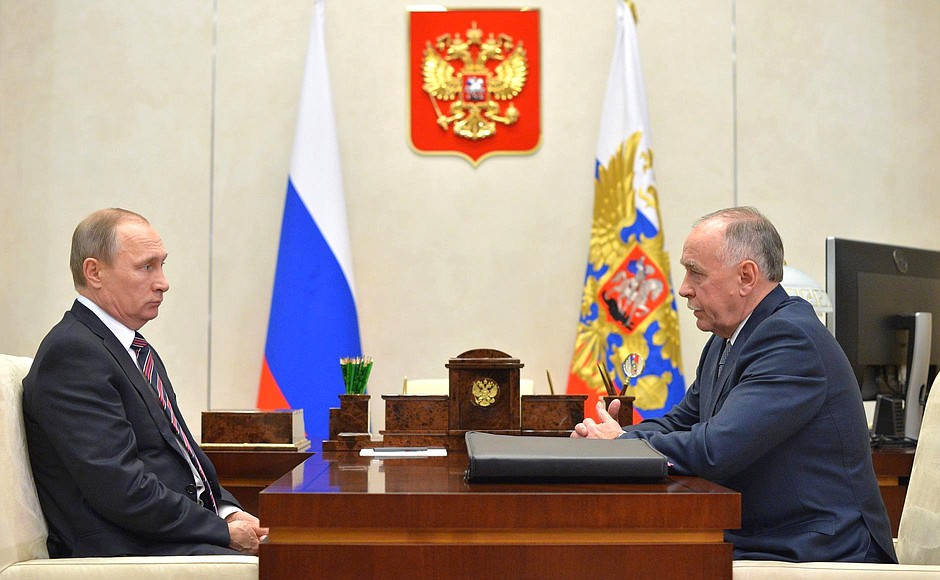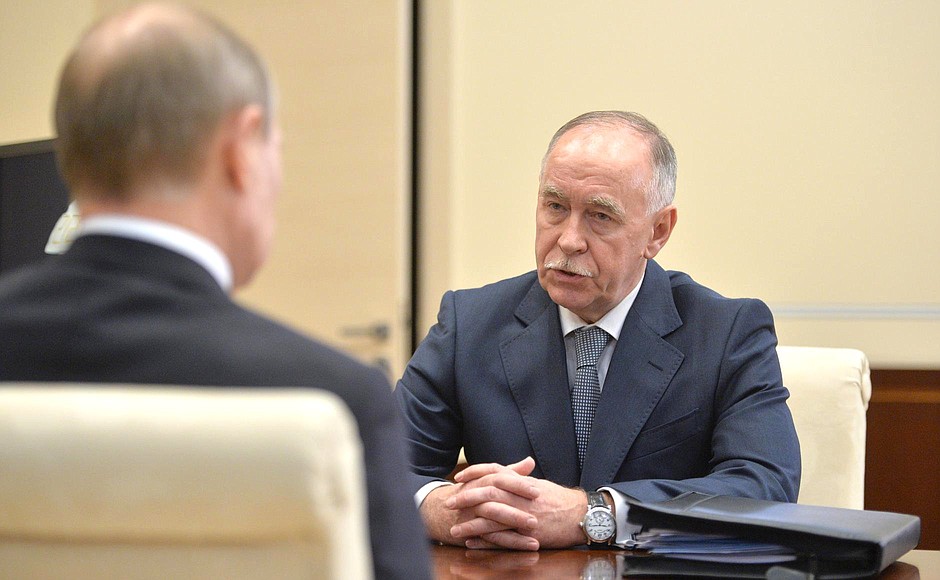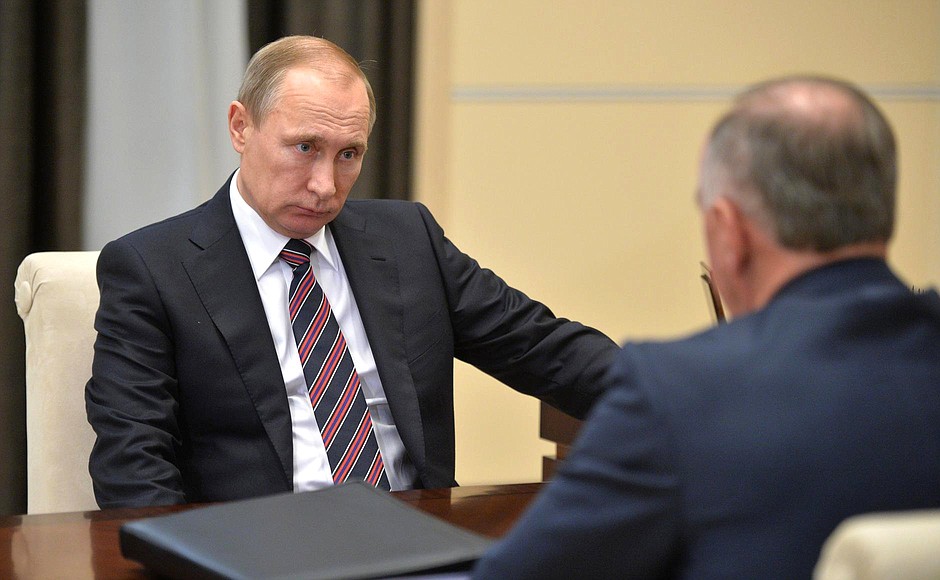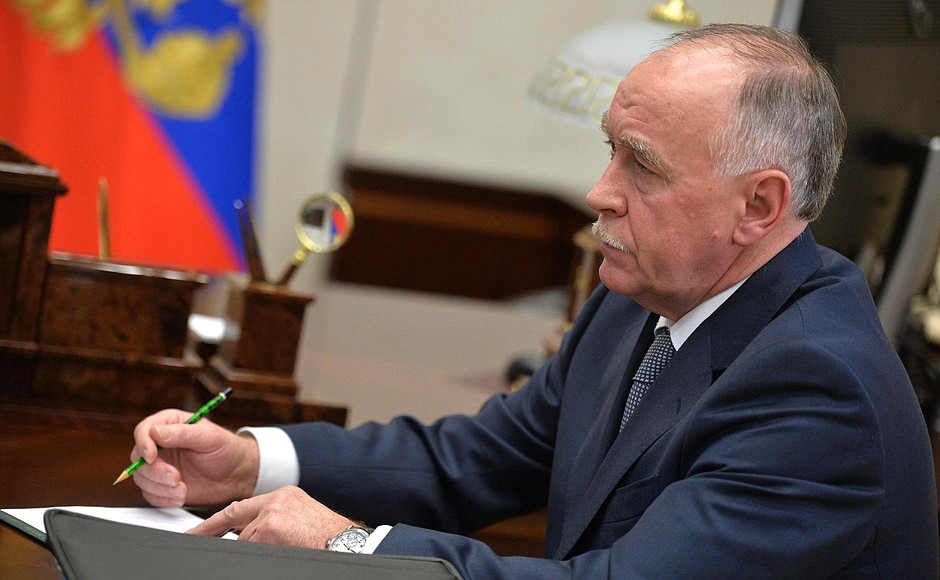President of Russia Vladimir Putin: Mr Ivanov, what results did you have last year?
Federal Drug Control Service Director Viktor Ivanov: Mr President, our main priority last year was to eliminate the drug supply and sale infrastructure. Throughout this work, together with our colleagues, we liquidated and neutralised 4,300 narcotics groups – organised criminal groups and associations.
As a result, we were able to seize over 36 tonnes of drugs: 3.5 tonnes of opiates, including 2 tonnes of heroin, as well as 21 tonnes of marijuana, 3 tonnes of hashish, 1.5 tonnes of cocaine and 6.5 tonnes of synthetic drugs.
Incidentally, the increasing volume of seizures of synthetic drugs largely coming from Southeast Asia is a steady trend. These are concentrated drugs that could be used to prepare 130 tonnes of smoking blends. Last year, for the first time, the volume of smoking blends or synthetic drug seizures exceeded the volume of seized marijuana significantly.
In all, 122,000 individuals are undergoing criminal trials for unlawful drug trafficking, and 13,000 of them represent organised crime groups. These are the main results we achieved last year.
In addition, I would like to note the increase in international cooperation. We were able to consolidate our position, first and foremost our foreign policy position, ahead of the UN General Assembly Special Session on drugs, which will be held in New York on April 1 of this year. It takes place once every 20 years and the last one was held in 1998. So together with Russia’s Foreign Ministry, we are directing our efforts towards consolidating the positions of different states – European nations, African states, and Central and Latin American countries. To this end, declarations have been adopted accordingly, which we sent to the Office on Drugs and Crime, at the United Nations’ Vienna Office. This is international consolidation.
I would also like to stress that we held a set of major operations within the framework of international cooperation with China’s Public Security Ministry, Spain’s police, our colleagues in Moldova, Belarus, Tajikistan, Kyrgyzstan, and within the framework of the anti-drug quartet, which we turned into a quintet last year. These are authorised bodies from Russia, Afghanistan, Tajikistan, and Pakistan, and we are now being joined by Iran. This will allow us to exchange information more quickly, plan and hold serious, large operations.
Vladimir Putin: Mr Ivanov, some time ago, you created a specialised service to fight unlawful drug trafficking. You have tens of thousands of people working for you. The service is working, and there are results, but many problems remain in this area.
You know that drugs are a major threat and do a great deal of damage to our citizens’ health and our nation’s economy. This is a real threat to our nation. And I expect that you and your colleagues, and other law enforcement agencies working in coordination with you, your partners in other countries – you just mentioned your cooperation with colleagues abroad – that all this will be mobilised to the highest extent in order to fundamentally resolve this problem.
You reported many times yourself how serious a threat this is to our nation. Clearly, this problem cannot be resolved through the efforts of the law enforcement system, your service, the Ministry of the Interior, the FSB, and even the Customs Service and other special agencies alone. Here, we need measures that are coordinated with the Healthcare Ministry, non-profit organisations and heads of regions. But the issue of coordinating this work lies largely on your shoulders. And I expect you to increase your efficacy.
Viktor Ivanov: Thank you.
I would like to note that the decisions by the State Council Presidium of June 17, 2015 laid a serious foundation for implementing a balanced policy with the use of police structures’ efforts aimed at reducing drug supplies.
However, the work to reduce the demand for drugs is even more important, because we have about 7.3 million drug users – in other words, people who use drugs to varying degrees of intensity. We are seeing a reduction; two years ago, that figure was 8.5 million people. Of course, we must work with these people, especially since this contingent stands apart for its deviant and criminal behaviour, because they acquire money for drugs by criminal means.
So we are now working on changing the paradigm of our anti-drug policy. We are prosecuting 122,000 people, including 90,000 individuals who stored drugs without the intent to sell – in other words, drug users. Of course, it would be more expedient not to send them to prison, but to use procedural mechanisms to place them in specialised rehabilitation centres, where they will be supervised, where they can work with healthcare professionals and regional social services, with an emphasis on non-profit organisations – just as you instructed us to organise this work.
Vladimir Putin: Good.
<…>



